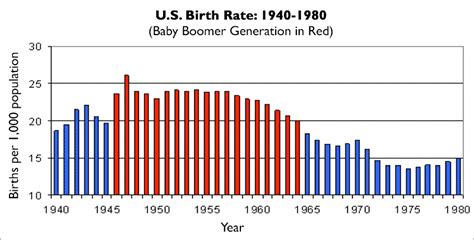Sarah Hoyt (who’s a few years younger than me) tackles the generational conflict that always seems to flare up on social media, if not so much in real life:
I’m going to write about boomers, why a lot of us blame them for … almost everything, why my generation (roughly 55 to 64) not only are not boomers, but tend to be the most vociferous in “D*mn it, I’m not a boomer.” Why I’m vaguely amused that millennials call everyone older than them “boomer”. And why I find it bizarre that my kids both hate millennials and identify as millennials, though they both are d*mn close to z and closer to z in attitudes. (And the younger one in date of birth, I think.) And why all this is unfair, because a marketing category is not an age group, and yet, perfectly fair in aggregate, because demographics is not destiny, but it sure as heck is economy. And economics shapes your life in a way you probably can’t think about too deeply without becoming enraged.
So, yeah, friends, in-betweeners, X, millenials and Zers, lend me your ears. I come not to bury the boomers and not to praise them, but to explain to everyone, including the sane boomers in the audience why the fractiousness exists, and to give — under the heading of giving perspective on the lives of others that we normally keep quiet about — an idea of how my non-generation (We certainly are not Jones. We don’t jones for anything that the boomers had. We just aren’t them) has gone through. Without blaming the boomers, because an accident of birth is not their fault.
First of all, and taking in account that I’m the one who says the population is not booming out of control, let me dismiss the idea the baby boom wasn’t real. That’s goofy. (To put it mildly.) You can argue the causes, but for about ten years — no, not the twenty five claimed. Marketing generations are not demographic generations — after World War II, families grew. Blame it on prosperity, which allowed one parent to stay home and raise the sprogs. Blame it on tax credits (it has been argued if the comparable applied today, people would have families of five or six too.) Sure, blame it on the move rural to city, which was tied to prosperity too, and the fact that the newly independent nuclear families didn’t have to put up with grandma’s critique of their child bearing or raising. Or blame it on the men having been away and the relief of the long war being over.
Blame it on whatever you want, but even without looking at the numbers, just by looking at family histories, families of five or six weren’t rare. And three was about average, I think. Four not anything to remark on.
But, you’ll say, that’s fairly normal for the past period. Sure. My mom, who was almost a boomer comes from a family of five (should be six, one lost in infancy) and dad from a family of four. And I’m almost sixty, and both dad and I were very late children. So, yeah “But that was normal before.”
Yes, it was, but now throw in prosperity, moves to the cities and … It’s not the babies who were born, you see, it’s the ones who survived. Even mom who was raised, for brevity of explanation, in a slum where going to your playfriend’s funeral, or more likely his infant sibling’s funeral was absolutely normal, had more of her friends survive than was normal for her parent’s generation.
To put it another way. Up until the late 19th century, women routinely bore 10 children and didn’t get to raise a single one to adulthood.
Even in the nineteenth century, women at the upper class level Jane Austen wrote about, routinely made two or three baby shrouds as part of their trousseau. Because that many deaths were expected. By my parent’s time that had improved — no, not medicine, sanitation. Better drains, a weekly bath, and washing your clothes more than twice a year — to the point that you would regularly raise about half of what you bore. (My family, having steel constitutions rarely lost a child. To compensate, we were always relatively low fertility.)
The improvement brought on by rudimentary sanitation and washing up was such that in the nineteenth century Europe burst at the seams with kids, which led to rapid invention, expansion, and yes, the adoption of a lot of half baked ideas. Because that’s the result of a lot of kids suddenly in a society. Baby busts … well, most of the Middle Ages, lead to slow innovation, a tendency to ossify the social structures, laws and regulations increasingly made by old men, for a world they only imagine exists. Stop me when this sounds familiar.
The baby boom happened at the intersection of the discovery of antibiotics and their popularization and also inoculation of school aged kids, both of which meant an unexpected number of children surviving childhood and surviving it in good health. And people having about the number of children their parents had. BUT — and this is very important — those children grew to adulthood and did so without any significant physical impairment.
What it caused was the same effect as if everyone alive had decided to have double or more the number of children. It was a massive demographic elephant moving through the societal snake.




